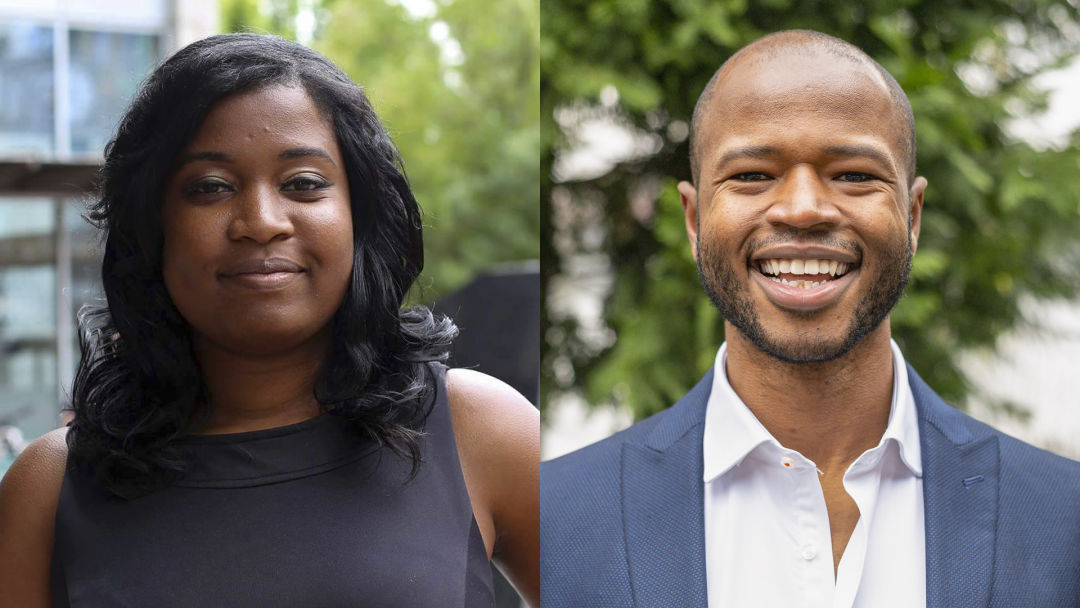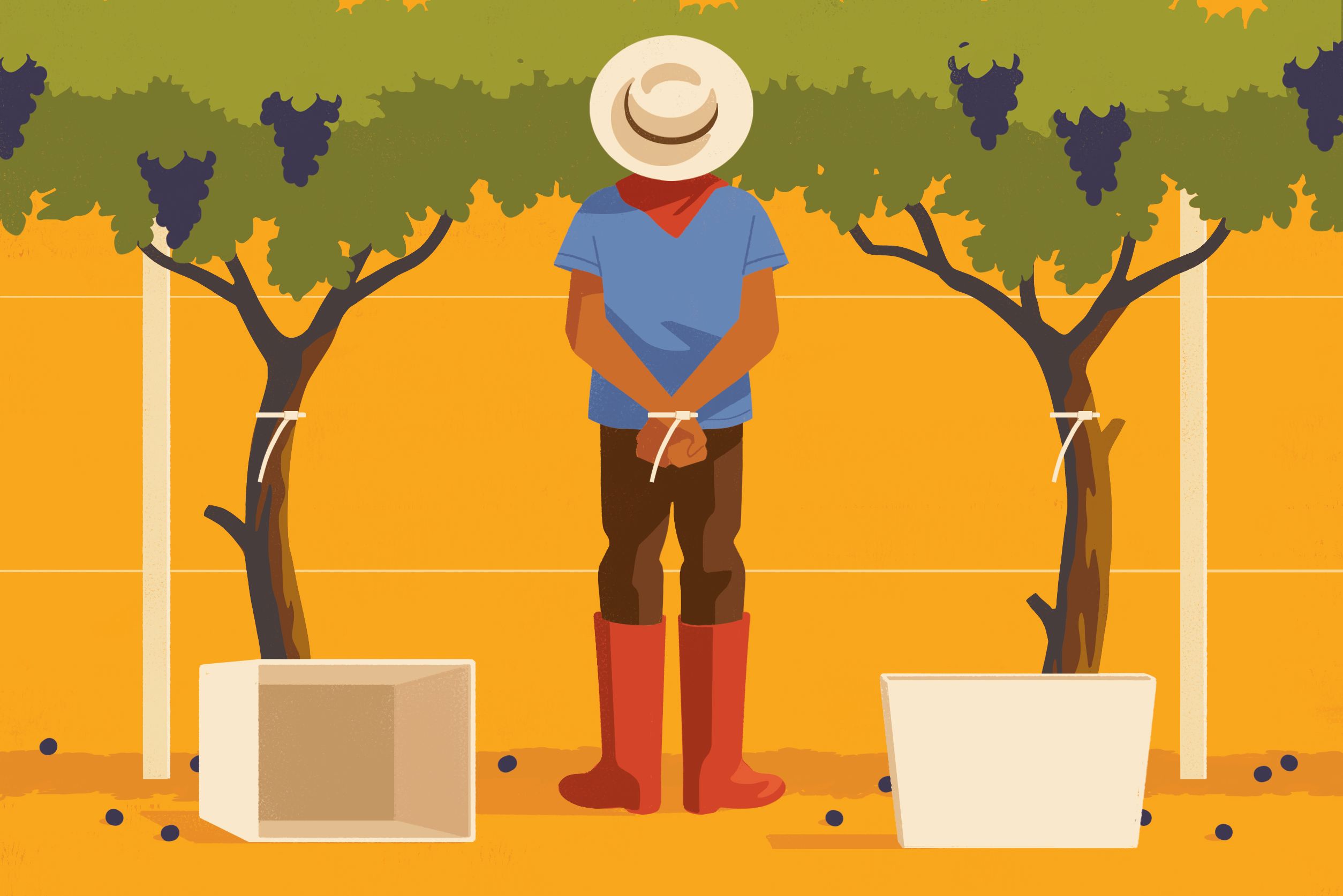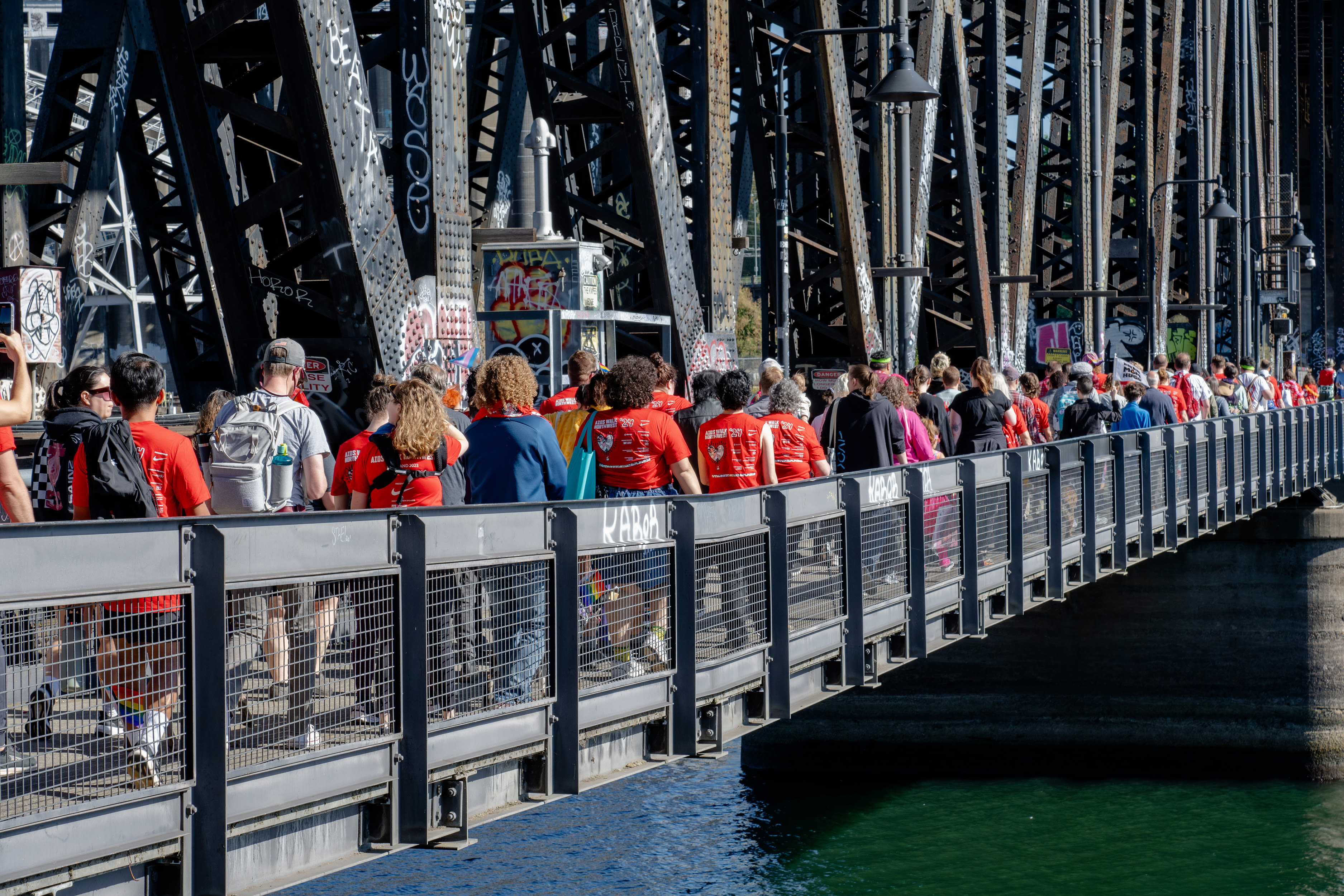An Emergency Fund for Black Portlanders Aims to Raise $1 Million

Salomé Chimuku and Cameron Whitten, cofounders of the Black Resilience Fund
When Cameron Whitten created the Black Resilience Fund two weeks ago, they hoped to raise $5,000 to help Black Portlanders. Two weeks later, the fund is at over $500,000 and counting, and has doled out more than $100,000, with some 3,600 people applying for help.
The idea came, says Whitten, when in the wake of George Floyd’s murder they noticed a flood of messages from white friends checking in. “It was such a high number compared to any other time a Black person has been killed, I could tell that something different was happening,” they say. “I thought at the very least I could route resources to [Black Portlanders] to pay for them to get a warm meal, buy some groceries, or pay for a cell phone bill or an internet bill.”
Whitten reached out to people in the Black community asking what kind of help might be needed, and to those who had offered financial assistance. “By the end of that day, we had ended up raising $11,000, all through direct messaging people my Venmo, Square, and Cash App.”
The next day, the initial target of $15,000 was reached in less than an hour, and the number kept going up, past $50,000. And the fund kept paying it out, distributing more than $8,500 in the first day. Day two, they dared Portland to raise $100,000 and got to $155,000. And it didn't stop there.
Whitten, the former executive of the Q Center who recently ran for Metro Council, is also an organizer of a monthly Reparations Power Hour through the racial justice nonprofit Brown Hope. The event invites Black, Brown, and Indigenous people to show up for food, drink, and a discussion, with each attendee given $10 in cash as symbolic (and tangible) reparations. The Black Resilience Fund has, says Whitten, sprung from this two-year-old program, and now become a major fundraiser for the same community. Portland-based advocate and policy researcher Salomé Chimuku came on board as a cofounder within days, and helped formalize the application process.
Those in need apply through a form linked to a GoFundMe and are interviewed by members of the fund’s fast-growing team of some 50 volunteers, some of whom were themselves recipients of help from the Black Resilience Fund. After the interview, volunteers deliver checks directly to the doors of the applicants. “We’re at about 3,400 applications,” says Whitten, who adds that many are from people who lost employment due to COVID-19, and have been waiting for weeks or months for government assistance to come through. “For a lot of the people that we have funded, they have received support from something that started two weeks ago before they received at receive anything from the state or federal government.”
The fund aims to help every single person who applies, with the criteria “that you are Black and you live in the Portland area.” Whitten says so far they’ve paid out to people “from Hillsboro to Vancouver. You meet those two criteria, and we try to fund you what we can.”
So far, more than $100,000 has been handed over to applicants, with the GoFundMe page breaking down how much has gone to specific categories, including electric and water, groceries, legal fees, medicine, student loans, and rent. “The question is, can we raise enough funding to make sure that everyone who is eligible gets something?” asks Whitten. “Right now, our fundraising goal is a million dollars. And if we were to raise a million dollars, we could guarantee that every person who’s applied so far gets $300, which is substantial for a lot of people who are currently getting no assistance at all.”
Donors can opt to receive regular communication from the fund, outlining exactly how money is getting spent. The transparency is marked, particularly as other crowd-sourced funding efforts have run into accusations that the money is being spent at a glacial and unaccountable pace.
Whitten and Chimuku have not yet applied for nonprofit status for the Black Resilience Fund, in part due to the urgency of the response and the benefits of zero overhead, but Whitten says the ultimate goal is to fold it into Brown Hope as a program. “It’s very important that we at least build the accountability structure before we merge it into a nonprofit that is going to be really legally viable,” they say.
For now, it’s about reaching the fundraising goal and helping everyone who has applied to date get something from a fund Whitten says was created to help people heal—not just from this moment, but from generations of trauma.
“It's not enough just to end police killings,” says Whitten, pointing to the epigenetic legacy of trauma and the effects of slavery on generations to this day. “We actually have to create avenues to allow people to heal from the impacts of racism. And that's what the Black Resilience Fund is looking to address.”




